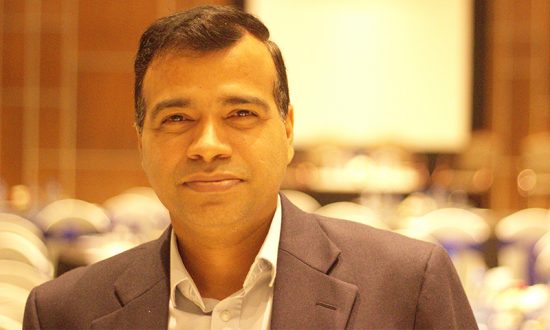Vivek Jain, Chief Business Officer, Shiksha.com and Naukri FastForward is an MBA in Finance & Marketing from IIM, Bangalore and a B.Tech in Electrical Engineering from IIT, Delhi. A proven leader in the online space, Vivek is spearheading Team Shiksha towards the next phase of growth and profitability, with an aim to make it the default platform for prospective students to research and decide about careers and colleges related to higher education in India or abroad. Vivek is a part of the Info Edge family for the past 10 years and has been involved in building businesses from scratch. Vivek brings with him a strong product and consulting experience with leading firms like Naukri.com, Adobe Systems, and IBM Research.
This time of the year is full of anxiety and pressure for most of the students in the country. For 12th class students, the stress of the coming board examinations along with entrance tests always keeps them on an edge. However, during moments of pressure, students require calmness of mind. Timely planning, guidance from parents and teachers, can help the millennials determine how fruitful life they would live in the coming years.
How different are Board exams and competitive tests?
Managing studies of both board exams and competitive tests is undeniably a challenging task as the difficulty level and depth of the syllabus of the two sets of exams are quite different. Hence, there is a need to balance preparation for both and handle the heaviness and apprehension that students experience from them.
Board examinations are set keeping in mind the capability of an average student following a defined syllabus and books. However, competitive exams focus on identifying the best and test the acumen of a student with intricate and tricky questions. Entrance tests check the logical aptitude and reasoning capability of the students and train them in a healthy competitive spirit to pursue top colleges across the country.
Planning strategies to ace both exam level
Prepare a regular timetable and a systematic revision plan since the beginning. The timetable and revision plan should be formulated in a way that the coursework for both exams is covered with an equal focus on theory and practical. Apart from studies, it is also important that students take time for relaxation and other activities. This is not a wastage of time, rather improves memory power and boosts accuracy.
Begin with mock analysis as soon as the syllabus is over. These self-evaluations will identify topics taking the maximum and least time and will also help find out areas where considering the question is more important than framing the answer.
Aspiring students should also map the topics that are common to both the board and entrance exams and solve them first. This will cover the syllabus faster and result in positive outcomes from both the exams when time is really short. Also, try to read through chapters that will be covered in class and coaching institutes before they begin with it. Plenty of time should be dedicated to practicing and revising the weaker sections of every subject, learning and rectifying from the mistakes arising during assessments.
Remaining focused after boards is essential. If a student becomes relaxed after board exams and loses motivation to carry on, it may impact performance in the competitive tests. Very long breaks after boards can affect efficiency and to bring back the flow and concentration level to the same degree. Even though you go for breaks, keep pushing the limit once the study regime resumes.
Tips to deal with ups and downs
Plan preparation techniques that are personally suitable. Avoid following the bandwagon blindly by comparing yourself with classmates. Everybody has a unique style of learning and should focus on what is best for them. Some students prefer to take up questions or topics that they find the hardest first and solve the easy ones in the end. This can help boost confidence and accuracy.
Students should prioritize their objectives. Understand what your goal is- whether boards or entrance exams or both; and start putting effort in that manner. Once it is clear, a lot of time is saved with better planning and execution. Focus on how to solve any problem rather than what type of questions will be given. Solve question banks to understand the pattern of the paper and how to attempt it. Numerous practice sessions help scoring well in the final exam.
Concentrate on the quality of preparation. Hours only count when it brings results. It is not crucial to know for how long a student had studied, but how much effort could be churned out from those hours. It is also advisable that appearing candidates must maintain calmness as much as possible. Avoid any last-minute new topic study or studying the whole night before the exam.
A proper sleeping pattern of at least four to six hours and activities such as yoga and meditation will boost health. Balance of mind and body can improve the overall performance of students manifold.




